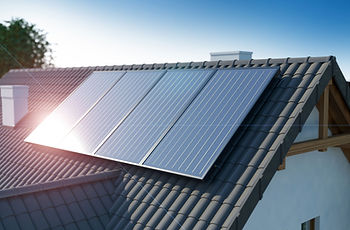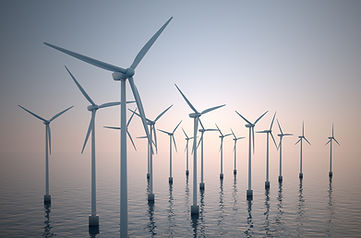
tablynunoforutahhouse
TAB LYN UNO
Candidate for
Utah House #13
Clinton, West Point, Northern Clearfield and SW Sunset

FOCUSED ON OUR OWN LOCAL ISSUES
HARD-WORKING, DEDICATED & COMMITTED TO REPRESENTING YOU
November 2022
Design, artwork, videos created and produced personally by Tab Lyn Uno

ENVIRONMENT
A 2018 Concern
Updated September 2022

Our environment is an essential part of our lives. The Native American Indians believe the land sacred. The Wasatch Front lies on a desert with limited water supplies and surrounded by mountains that capture air pollutants. All of us are dependent on our natural resources. We must treat it with respect.
Humans saw a three decade decrease on Green House gases as a result of the Coronavirus, one of the few positive consequences of this virulent infection. "U.S. greenhouse gas emissions set to drop to lowest level in three decades," The Washington Post (November 19, 2020). Utah's air pollution just by itself kills thousands of Utahns each year according to a BYU study. "Study finds air pollution reduces life expectancy in Utah," The Salt Lake Tribune (November 18, 2020).
Just in the month of June, in the space of three days, Utah experienced record 100-degree heat to a record high cold temperature of 42, "From 100-degree heat to record cold: Howling winds bring sudden seasonal reversal in West, High Plains," The Washington Post (June 9, 2020). Our climate is changing whether because of humans or nature for the worse. Farmers depend on a somewhat reliable weather pattern to plant and harvest their farmlands. Animals and hunters, even golfers, and skiers, and the outdoor tourist industry rely on some weather expectations to function at their best. Utah policy as to our weather needs to continue to be on the forefront of science and provide farmers, outdoor recreation businesses, even our international airport the best tools to address these serious changes in our weather before it becomes another enemy.


Less than a year ago in Clinton, the start of possible salt storms occurred while I was out campaigning. July 16, 2021




Conserve our scare water resources. Utah is America’s “driest state” (“This is a Desert”, The Salt Lake Tribune editorial, July 28, 2018) or "As Colorado River Water Users Conserve, Utah Wastes More " Water Deeply (July 12, 2018) “thristiest state” because of our use of cheap untreated irrigation water for our lawns (Water Deeply, March 5, 2018) even as Utah contemplates spending billions of dollars for new water development projects. Instead of increasing our taxes and state bonding (a form of tax increase) to go towards likely unnecessary water development projects ("Why did Kane County pull out of pipeline? It just isn't that thirsty," The Salt Lake Tribune, April 24, 2020), Utah residents need to be made aware through metered water use of our super green lawns and gardens of the huge amount of water we waste. The State can do better by greatly simplifying the flip the strip program and help local cities develop increased incentives to reduce water use of lawns through conversion to low‑water use gardens and green spaces.

Save Our
Great Salt Lake
Over four years ago, I spoke up for one of our State's greatest natural treasures, the Great Salt Lake, that continues to be threatened by human development, and I have continued to sound the alarm since. It seems belatedly only this year has our State Government awoken to the alarm. Now at its lowest surface level in recorded history in 2016, our $1.3 billion economic and recreational resource is being drained dry by continued suburban development that is taking away natural valuable farmland and recharging waters to the Great Salt Lake (Deseret News, May 5, 2018). The likelihood of an emerging megadrought also increases undue pressure on our environmentally sensitive important body of water, "Warming makes US West megadrought worse," Standard-Examiner (April 17, 2020). According to Maura Hahnenberger, an atmospheric scientist at Salt Lake Community College, dust storms from dry lake beds could easily become an additional pollution source to metropolitan areas such as the growing Wasatch Front which already appears to suffer from periodic can't see through air pollution. Utah needs to begin protecting this precious natural resource by balancing the destruction of agricultural land and along with it our great lake with the growing need for human habitation. Our Legislative House District #13 appears to occupy an important geographic position in the defense of our precious aqueous treasure. As a State House Representative, I will fight for our close "water" neighbor (a great salt water lake in the Western Hemisphere )(Wikipedia). Two years later with little action having been taken by our State Legislature, the words of warning have only become louder and more pronounced "A shrinking Great Salt Lake and how 12 strategies may save its future," The Deseret News, August 29, 2020; "Tribune Editorial: No Lake City," The Salt Lake Tribune, August 30, 2020. It's past time for talking, House District 13 deserves a state representative who will take action on protecting one of Utah's greatest treasures and our close environmental neighbor.
Help Save The Value of the Great Salt Lake
by
Saving the Larapin Pond from the Legacy Extension
(New August 2022)
HILL AIR FORCE BASE ITSELF MUST BE PROTECTED
Hill Air Force Base by one account according to the Office of the Under Secretary of Defense, may be among those bases at the highest risk of impacts from climate change. "Report on Effects of a Changing Climate to the Department of Defense," Department of Defense (January 10, 2019). Our state representative must continue to be sensitive to our environment and its impact on our major defense employer.

New research reported by Utah State University this year has found that our Great Salt Lake is becoming more toxic and spreading this toxicity to other parts of our ecosystem. "Hazardous metals aren't only in Great Salt Lake's dust. They're in the ecosystem too," Deseret News (June 4, 2022). Even as the on-going extension north of the Legacy Highway continues, it threatens to cover up the 3.5 acre, 37-year-old man-made pond in West Point that provides an alternative, fresh water source for wildlife and our natural environment.
Our Utah House District must hang onto as much of our precious water resources as possible. If elected, I will fight to ensure that more of our quality water is not dredged and covered over by concrete.
Larapin Pond, West Point. May 4, 2020

Increase the use of wind and solar energy
Wyoming generates 1,489 megawatts of electricity through wind towers meeting the needs of 244,196 homes while Utah only generates 391 megawatts. Utah needs more wind towers. The State Legislature needs to re-examine high utility company charges for solar-powered homes and reduce excessive utility charges. Utah needs to continue to increase support for Governor Herbert’s electric vehicle-charging infrastructure to clean up our air. More research and tax incentives are needed to promote alternative energy projects and jobs that don’t create poisonous waste and that eventually give back to consumers instead of allowing China to take over our market (Mother Jones, July/August 2018). Our grandchildren’s energy needs will come from alternative energy sources; and we must begin to transition now for their benefit.
Preserve our dwindling natural environment
Utah needs to continue working with organizations such as Nature Conservancy to retain voluntary cooperation to buy and protect our natural wilderness for both its majestic beauty and its economic value in bringing millions of dollars of tourists’ money to Utah
If elected, I will be working hard to preserve the WEST POINT 3.5 ACRE LARAPIN POND from being dredged over to make way for the Legacy Extension. There are better alternatives to extending Legacy straight north through West Point. Our community needs to preserve as much of quality water resources for our precious migrating waterfowl as possible as our Great Salt Lake is being threatened.



Saving this 37-year old man-made 3.5 pond in West Point named Larapin where hundred of waterfowl and other aqua animals take refuge. May 4, 2020.
Increase non-renewable resource severance taxes
The dinosaurs didn’t die and leave a will mandating that only corporations profit from their deaths. Oil, gas, and other non-renewable energy are precious commodities that all of us should benefit from. By increasing the tax on these one-time energy sources, both industry and the public can be assured of benefits that were left in the ground hundreds of millions of years ago. We can no longer exploit our diminishing resources without considering future generations. We must re-invest funds into new ways to develop renewable energy sources so that our children and grandchildren will have adequate energy supplies to continue living after we are gone.
Cleaning our Environment Through Farming

Through Regenerative Farming some of our struggling Utah farmers can increase their chances for survival through reduced farming expenses while at the same time transforming out farmland into soil that can capture even more of the environmentally toxic carbon dioxide polluting our atmosphere and instead turning it into organic carbons in the ground. "Field of Dreams," Mother Jones (May/June 2020).